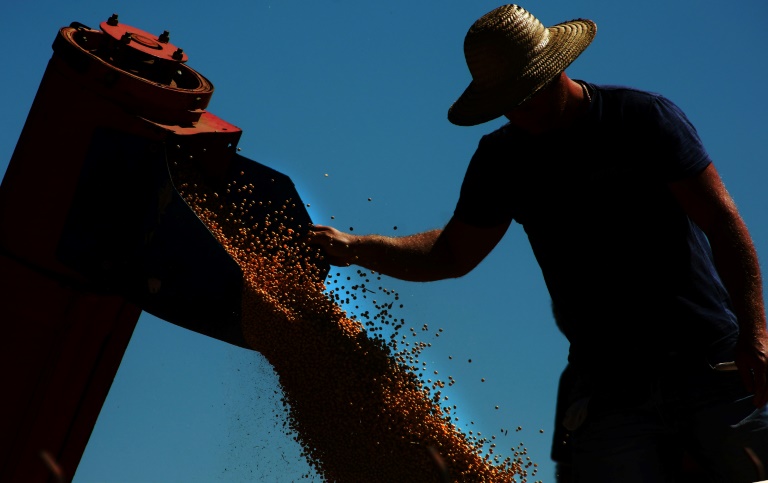Brazil’s soybean farmers hit back Tuesday at a European Union plan to ban food imports from deforested areas, calling it “protectionism disguised as environmental conservation.”
Brazil, the world’s top producer of soy and beef, stands to lose big if the EU goes ahead with the draft law unveiled last week, which would require exporters to show their products are “deforestation-free.”
The plan “is an affront to national sovereignty, and seeks to lump legal land use together with illegal deforestation, which is already punished under Brazilian environmental law,” the Brazilian Soy Producers’ Association (Aprosoja) said in a statement.
“The European Union needs to understand it is no longer the metropole or owner of the world, and Brazil and South America are no longer its colonies.”
Cattle ranching and farming are the biggest drivers of deforestation in the Brazilian Amazon, a sore spot in European relations with far-right President Jair Bolsonaro’s pro-agribusiness government.
Aprosoja said farmers with clean environmental records would be hurt by the ban, which it attacked as an underhanded bid to shield European farmers from competing with Brazilian exports.
“If the Europeans are really worried about forests, they could use their own land to replant them and implement the same legal reserves and protected areas we have here,” it said.
Brazil’s forest code requires farmers to protect 20 to 80 percent of native vegetation on their land.
The EU proposal would affect soy, beef, palm oil, cocoa, coffee and wood products. It follows an international pledge made at the UN climate summit earlier this month to end deforestation by 2030.
Brazil, which signed that plan, has pledged to halt illegal deforestation by 2028.
But Bolsonaro faces sharp criticism in Europe for presiding over a surge in deforestation in the world’s biggest rainforest since he took office in 2019.
Deforestation in the Brazilian Amazon hit a 15-year high of more than 13,000 square kilometers (5,000 square miles) in the 12 months to July.









